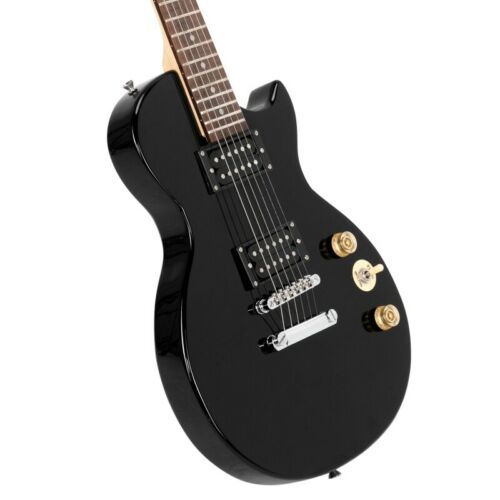Occasionally I write off-topic posts like this to show that I actually have interests outside of work. Not many:) I generally don’t promote these as I’m extremely private by nature so it is difficult for me to show folks a side of me other than my business-related pursuits. Of course, if you have read ALL of my posts, you can find some deeply personal tidbits. I find the writing cathartic.
I have written before about my one late-life hobby which has been learning to play guitar. I’ve collected a lot of gear (I’m really good at that) and I have made actual progress in playing. However, I still play badly but I am playing better!
Over the past year I have begun to collect an assortment of luthier tools with the goal of doing, at least, some basic guitar maintenance on my own. I would also like to eventually mod my guitars and maybe even build one from a kit one day. I don’t mind paying $50 to $100 for the average trip to my luthier but why not do it myself if I can?
Here’s why. I have zero mechanical skills. I don’t work on cars. I create the occasional wood product, from scraps, that I proudly refer to as “primitive”. They work but don’t look too close. That being said, I have always been a DIY guy but primarily as it relates to tech and software.
So … I have all of these shiny luthier tools but I also have a problem. I’m afraid to use them. If I try to clean up fret ends on a $1,500 guitar, and I screw it up, I would be devastated. I need a sacrificial guitar to practice on. Ahhhhh. That makes sense.
I turned to online shopping sites including Facebook Marketplace looking for a used piece of crap for $100 or less that would be suitable for bringing up to a playable status and something that I could maybe mod to make it even better. I have a few sets of pickups and tuners, for example, that have been removed from other guitars that I have had upgraded.
I also needed a few more tools like nut files and a soldering kit. I don’t know how to solder but, of course, there’s YouTube for that. I now have all the basic tools that I will need. These tools, incidentally, ain’t cheap. I’m not about to pay for professional grade but I don’t buy the least expensive ones either.
During my research I came across a video by Phil McKnight and his “Know Your Gear” channel. Phil is awesome and he was taking a $120 Glarry guitar (this is dirt cheap for a new guitar) and reviewing it. The purpose of the video was to show you what you can expect for a guitar at this price point.
Glarry GLP 101 – What I bought. Not in Phil’s video.
As he went through the guitar, Phil showed all of the things that he needed to fix and adjust (and this is a brand new guitar) just to make it playable and there was a lot! He also notated both what he would charge to do these things as a tech or what you might spend on tools to do it yourself. Either way, this $120 guitar would end up costing well over $300.
I can tell you that I have bought some new and used guitars in the $300 to $400 range that were awesome, far better than this Glarry would ever be without major upgrades, and I had to do nothing to them. Still, for my purposes, I could pick up a new guitar for $120 that would need the kind of work that I needed practice on. Perfect!
I began my search for a Glarry and they have a Les Paul copy (GLP 101) on sale for $99 and $20 shipping. This meets my desired price point and pickup configuration. Next I am on eBay and some guy is selling the exact same guitar, new and in the box, for $59.99 and $9.99 shipping. Hit the “Buy Now” button and do it now. It even comes with a crappy gig bag and, I’m sure, an equally crappy cord, strap, and picks. I’m going to be in crap heaven.
Well, the guitar arrived and it was beyond my wildest dreams! This thing needs … everything and more. As far as I can tell, the neck is straight and the nut looks to be cut pretty well. After that, let’s just say that my work is cut out for me.
My plan was to work on the frets and fretboard, replace the strings, set the action and intonation, reseat the bridge (it’s tilted), and then upgrade the pickups and tuners. I opened the sucker up and figured out how all of these things are connected.
It probably took me 10 hours total to complete the work which was much more intense than I had anticipated. I made so many mistakes, I lost count. However, I learned a lot and I expect my next project to be much smoother. It probably won’t be.
In this respect, I am approaching guitar maintenance in much the same way that I address business-related tasks. Persistence. Never get between a dog and his bone. I don’t, I won’t, give up easily.
If I scar it up and screw it up so badly that there is no hope for it, I will part it out, introduce the body to my chop saw, and then give it a Viking funeral. For $60 … who cares! I give names to all of my guitars. I’m calling this one Firewood.


